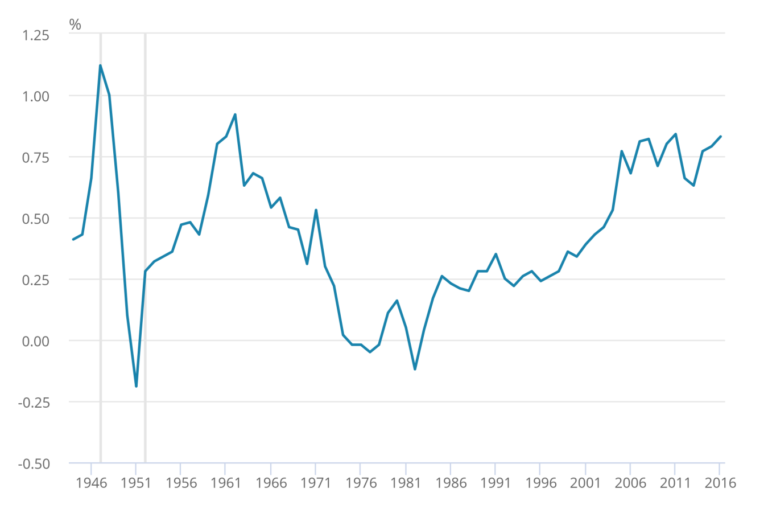
UK population growth highest in 70 years
Last week, the Office for National Statistics released its mid-2016 Population Estimates for UK, England and Wales, Scotland and Northern Ireland. These statistics reveal that the number of people residing in the UK increased by 538,000 over the previous year, the largest rise in actual numbers seen in nearly 70 years.
Net international migration continues to be the main driver of growth, while an increase in births and fewer deaths compared to the year before are also contributors.
Estimates show
- The population of the UK at 30 June 2016 is estimated to have been 65,648,000 people.
- Over the year to mid-2016, the number of people resident in the UK increased by 0.8% (538,000), this growth rate is similar to the average annual growth rate since 2005.
- The population increase of the UK reflected increases of 193,000 people through natural change (35.8% of the total increase), 336,000 through net international migration (62.4% of the total increase) and an increase of 9,500 people in the armed forces population based in the UK.
- The UK population continues to age, but at a slower rate than recent years with only a small change to the proportion aged 65 and over (18.0% in mid-2016 compared with 17.9% in mid-2015) and an unchanged median age of 40.
- The annual population growth varied across the UK – in England, it was 0.9%, Wales 0.5%, Scotland 0.6% and Northern Ireland 0.6%.
Annual population change for the UK, mid-1944 to mid-2016

Source: Office for National Statistics, National Records of Scotland, Northern Ireland Statistics and Research Agency
Uneven distribution
These findings also reveal that population growth within the UK has not been evenly distributed. The rate of population growth in London is more than twice that in Wales, Scotland, Northern Ireland, and three Northern English regions. Out of the four countries that make up the UK, England’s population also grew the fastest, exceeding 55 million for the first time.
Housing under pressure
A report by the housing charity Shelter has highlighted the insecurity of people on low incomes arising from pressure on housing supplies. Factors such as a freeze on certain housing benefits are, according to the charity, threatening one million families with eviction. The underlying mismatch between housing demand and supply – especially in regard to lower cost social housing – exacerbates all the surrounding problems.
Our view
In a statement to the press, Population Matters said:
“These figures for the year up to June 2016 reflect the situation as it has been for many years now, with net migration being the highest driver of population growth. The most recent migration figures, however, indicate fewer people coming from the EU and more citizens of other EU states returning home. If this continues and the 900,000 Britons living elsewhere in the EU start considering their positions, population dynamics in the UK could start to change in significant ways.
“More people means more pressure on everything, from our food to our housing and from buses to butterflies. With Brexit negotiations likely to have such a significant impact, it is inexplicable that the UK still does not have an integrated, effective and realistic policy framework for population. The number of people in the UK already puts too great a strain on our public services and natural resources. Multiple factors contribute to our numbers, however, not least fertility and birth rates that are higher than many other EU countries.
“Managing and eventually ending population growth in an equitable, sustainable way should be a top priority for government and Population Matters is calling on he new government to introduce a National Population Policy.”
For more information about population and its impact in the UK, see our Key Facts UK page.
For more information about the proposed National Population Policy, visit here.
